|
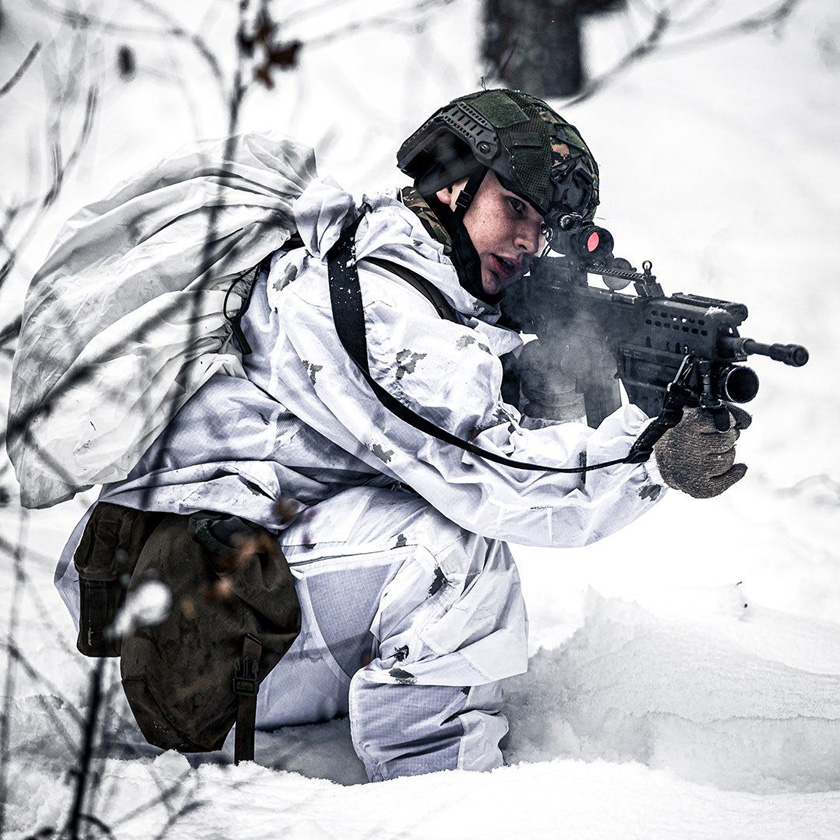
NATO
The UK, Denmark, Finland, France, Germany, the Netherlands, Norway, and Sweden have issued a joint statement
saying Trump's Greenland threat risks a "dangerous downward spiral that undermines transatlantic relations:
"We stand in full solidarity with the Kingdom of Denmark and the people of Greenland. Building on the process
begun last week, we stand ready to engage in a dialogue based on the principles of sovereignty and
territorial integrity that we stand firmly behind."
|
|
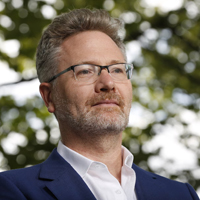
⦿ The Guardian
Adam Tooze in 2018
|
|
2026 January 18
Adam Tooze, Historian
Robert P Baird
Born in London, raised in West Germany, and living in New York, where he teaches at Columbia, Adam Tooze is an expert on the infrastructure of global finance and the economics of the green-energy transition.
Tooze is the author of five books, including Crashed, his 2018 history of the 2008 financial crisis. He also writes regular columns and essays, hosts podcasts in English and German, and publishes a Substack newsletter called Chartbook.
He spends most of his time tracking the rise of China as an economic superpower. His analysis: "My basic wager in interpreting modern history is to bias toward the thought that it might be unprecedented."
Tooze is the product of five generations of university-educated women. His maternal grandparents were wealthy cosmopolitans and his father was a prominent molecular biologist, which took the family to Heidelberg in 1974.
Tooze graduated in economics and moved back to West Germany in 1989, just in time to see the Berlin Wall come down. His research led to a doctorate in history at the LSE and then a teaching job at Cambridge.
Crashed had its origins in a seminar on the philosophy of history he taught at Yale. He analyzed the global economy as a matrix of interrelated corporate balance sheets, which gave him a framework for analyzing how money moved around the world.
Crashed demonstrated the political foundations of the global economic system. Democrats cited it to argue that the 2008 crisis was responsible for the rise of Donald Trump. Tooze enjoys being a sounding board for people with power: "They have the sense that you understand the way in which these pieces move."
Tooze was frustrated with Joe Biden and saw the "narcissism" of the Biden team close up. In all his many years of therapy, he said, there were only two occasions on which he sought help in response to politics. One was Brexit and the other was his encounter with the Biden administration.
In early 2025, Tooze became an American citizen. He says Trump is "obviously a degenerate buffoon" but sees him as a symptom rather than a cause of the US decline. That decline is far less interesting to him than the rise of China.
Tooze has a relationship with Chinese journalist and podcaster Qing Wang: "Her fluency in English expanded this huge emotional world for us, and I really urgently want to reciprocate."
Learning Chinese has been a lesson in humility for him. He's impressed by the speed and scale of China's green-energy rollout: "China is the climate crisis and its solution."
Tooze: "My deep conviction is that the West needs to accept the end of its era of global domination .. We're not the love interest. This song is not about us."
AR I've enjoyed reading various Tooze texts over the years. His big claim about China is well taken. I've thought much the same for some years now.
|
|
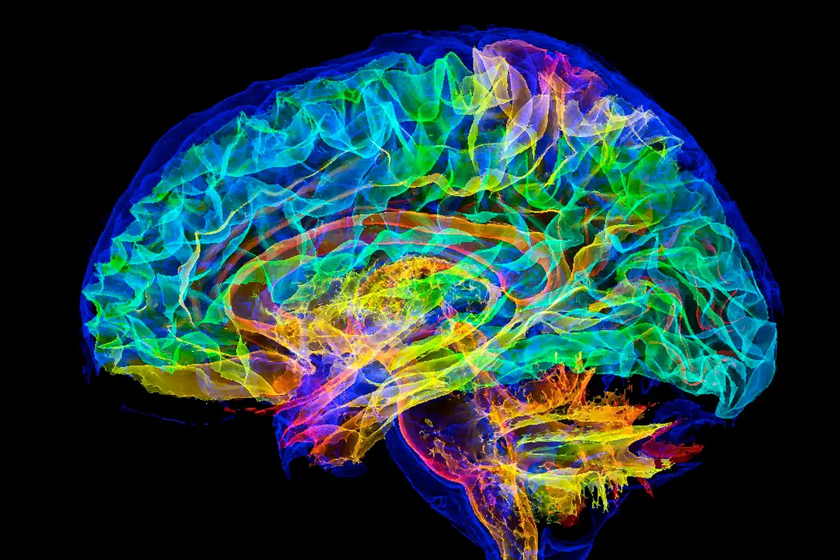
KH Fung/SPL
Digitally enhanced 3D MRI scan of human brain
|
|

|
|
2026 January 14
Supercomputer Simulation of a Human Brain
Alex Wilkins
The latest supercomputers can run simulations of billions of neurons, as many as in human brains. We have long modeled specific brain regions, but we have never put them all together into one big brain model. This is now changing.
Forschungszentrum Jülich researcher Markus Diesmann et al aim to run a spiking neural network with 20 billion neurons and 100 trillion connections on the exascale computer JUPITER (Joint Undertaking Pioneer for Innovative and Transformative Exascale Research) in Germany.
The JUPITER model will be grounded in data from experiments on human brains. University of Sussex researcher and Diesmann collaborator Johanna Senk: "We now have these anatomical data as constraints, but also the computer power."
University of Sussex researcher Thomas Nowotny: "We can't actually build brains. Even if we can make simulations of the size of a brain, we can't make simulations of the brain."
Cellular Bioelectricity
Elise Cutts
Cells use bioelectricity to coordinate the extrusion of sick or struggling cells from tissue to maintain health and keep growth in check.
As epithelial tissue grows, cells are packed more tightly together, which increases the electrical current flowing through cell membranes. A weak, old, or energy-starved cell will struggle to compensate, triggering a response that sends water rushing out of the cell, shriveling it up and marking it for death.
Virtually every cell on every branch of the tree of life expends much of its energy budget on maintaining a voltage across its membrane. The membrane potential stores potential energy that can be released later.
Ions enter and exit cells through specialized protein channels and pumps. Cells use their chemical energy to pump ions against the electric flow. They maintain their membrane potential by controlling the natural current through their membranes.
Neurons use bioelectricity to share information. By releasing neurotransmitters that open and close ion channels, neurons can nudge neighboring membrane potentials up or down. If a nudge pushes a potential beyond a threshold, the neighboring neuron spikes.
All tissues maintain membrane potentials. Epithelial tissues burn a quarter of their available energy to maintain membrane voltages between −30 mV and −50 mV.
Epithelial extrusion keeps tissue growth in check. Cells destined for extrusion lose their membrane potential about five minutes before shrinking and being extruded. The cells dump their water and shrivel up like raisins, which triggers extrusion.
Densely packed epithelial cells squeeze each other. As they get more crowded, the squeezing intensifies. This opens pressure-sensitive ion channels, which let positive sodium ions leak across the cell membranes and into the cell.
A healthy cell activates pumps to push back. But in stressed or sick cells, the membrane voltage falters, the channels open, and water leaks out. Once a cell loses enough volume, it is extruded.
In multicellular animals, embryos generate electric fields that guide the migration of stem cells to their proper locations.
AR The JUPITER work is perhaps the first big news on this topic that comes too late for mention in my new book Psy‑Phy. The bioelectricity insights are entirely in keeping with my expectations.
|
|

AR
Books, books, books: Norrington room, Blackwell's bookstore, Oxford, January 10
|
|

|
|
2026 January 13
The Platonic Representation Hypothesis
Ben Brubaker
AI systems learn by ingesting lots of data during training. Language models and vision models can develop similar representations, even when trained using different datasets or different data types. A few studies suggest their representations grow more similar as the models grow more capable.
Researchers at MIT describe this convergence with a Platonic representation hypothesis. Plato imagined prisoners in a cave seeing the world only via shadows cast by outside objects. He said the objects we encounter in everyday life are shadows of ideal forms in a transcendent realm.
The Platonic representation hypothesis says the transcendent realm is the real world, which casts shadows in the form of streams of data. AI models are the prisoners. Different models, exposed only to the data streams, begin to converge on a shared Platonic representation of the world.
Neural networks represent words or pictures as lists of numbers, each indicating the degree of activation of a specific artificial neuron. To simplify the math, focus on a single layer of a neural network in isolation and read the neuron activations in this layer as a vector in an abstract space. Two representations are similar if the corresponding vectors point in similar directions.
Within an AI model, similar inputs tend to have similar representations. Feed a list of words into both networks and record their representations of each word. In each network, the representations form a cluster of vectors. We find that different models' representations of the same concepts are often similar. More powerful models seem to have more similarities in their representations than weaker ones.
Researchers tested vision models and language models of varying sizes on a dataset of captioned pictures. They fed the pictures into the vision models and the captions into the language models and compared clusters of vectors in the two types. A steady increase in representational similarity was seen as models became more powerful, as the Platonic representation hypothesis predicted.
Measurements of representational similarity involve a host of experimental choices. But if language and vision model representations are to some extent interchangeable, that could lead to new ways to train models that learn from both data types.
AR Our brains work like this too. They use input data streams to develop models of the external world, and different sense modalities feed into the same (functional analog of a) vector space to build up a mindworld, as I call the brain's model in my new book Psy‑Phy.
|
|

NATO
British Challenger 2 tank, NATO exercise Bold Panzer, Estonia
|
|

The Final Act
|
|
2026 January 5
Homeland Insecurity
David Betz, MLR Smith
Western societies are entering the long twilight of civil war.
In the UK, the 2016 referendum on EU membership exposed the fragility of democratic authority. The referendum result was a close but unambiguous decision to leave. What followed was a prolonged demonstration of elite obstruction.
In the EU, a habitual disdain for unfavorable verdicts from the ballot box illustrated how ruling elites, when confronted with electorates that refuse to ratify their designs, simply set aside the principle of popular sovereignty.
Liberal democracy withers away when the political culture becomes theater. Legitimacy collapses and violence begins. The Brexit saga shows how mass uprisings erupt when those in power alter the rules to the detriment of the governed.
Demographic change drives a perception of cultural dispossession. Native citizens sense political and economic decline as growing Muslim communities resist assimilation. Natives abandon major cities and migrants consolidate in enclaves.
Polarization, disillusionment with normal politics, and yawning gaps between public expectations and elite delivery are the classic precursors to civil war. Erosion of prospects makes governments appear as managers of decline and nudges populations toward civil conflict.
Younger generations across the West are materially disadvantaged compared to their parents earlier. Their prospects for stable employment are diminished, their savings and pensions meager, and their likelihood of owning homes drastically reduced.
A swelling cohort of disaffected young people faces the prospect of living with third-world levels of violence. Women and girls bear the brunt of this insecurity. In Britain, statistics show rape offenses at their highest recorded level, doubled in number over the past decade.
Modern insurgencies and terror networks are leaderless movements that form around a compelling narrative. In Europe, such a narrative surrounds a perception of demographic displacement. Native populations interpret migration as engineered transformation in defiance of popular opposition.
The governing class has no superior narrative and offers only managerial drift. When the governors fail to channel discontent, the marginalized resort to collective action. These events reveal a state without legitimacy, without direction, and without a future.
Three decades ago, most Western states could still be described as cohesive national communities. Today, they resemble patchworks of tribes. This transformation is calamitous.
The ideology of progress in the West underwrote every other social and political claim. Progress is now experienced as dispossession, creating states in which legitimacy has evaporated, grievances are mounting, and the architecture of stability is crumbling.
The most potent source of agitation in Western societies is mass immigration. When immigration is seen as imposed displacement, the result is political dynamite.
Social capital sustains societies just as financial capital sustains economies. Ethnic diversity corrodes it. Diverse communities show diminished trust, weaker voluntary associations, higher levels of crime, and heightened alienation. Shared resentment forges strange alliances with Islamists.
Governance has become economic management. Nations are no longer imagined as communities bound by history or mutual obligation but as balance sheets to be managed. The ruling class is drawn from high finance.
When rulers cannot protect, they lose everything.
AR This is my radically reduced take on a long and heavy scholarly article. I've cherry-picked its hot topics and edited it for clarity, but the main claims and argument are authentic. I don't accept its conclusions at all, but I think we need a clear reckoning with the point of view it represents.
The article struck me as a jeremiad consistent with the views expressed by Nigel Farage in the UK, both in his UKIP days and in his new Reform guise. As this finding suggests, I'm eager to refute its argument, as well as similar claims expressed by Donald Trump and his MAGA supporters.
Refuting a purportedly scholarly argument takes more than putting a political label on it, so let's tackle the claims as they appear here.
First, the Brexit saga revealed a lot more than elite obstruction. It revealed elite dismay, followed by incompetence, as the enormity of the challenge dawned on the people involved. Since the Leave campaign had been based on lies by wealthy tax-dodgers with support from Kremlin manipulators, no‑one could have made Brexit work.
Second, popular disillusion with politics isn't always a righteous response to venal elites. People can be misled or deluded, not only by evil manipulators but also by the sheer opacity and difficulty of the issues that arouse their ire. This is a deep flaw of democracy that makes pawns of rulers and ruled alike in face of wider forces, or fate.
Third, diminishing economic prospects aren't inevitable in a world where AI and robots promise both goods and good order in abundance to any society smart enough to take proper advantage of them. The obvious narrative to help us do so is that it's mainly the expense and dislocation of war − civil or otherwise − that might hinder us.
Fourth, it's too easy to demonize Muslim immigration. Modern societies are surely strong enough to overcome the evils of medieval mindsets that thrive mainly on social alienation and moral atavism. The challenge in the age of social media and secular morality is to forge new narratives of progress that fill the vacuums left by old woke views.
Fifth, sound economic management is integral to good governance, but we need more. We need a great story that sets souls alight − not jeremiads about civil war.
2026 January 4
Trump Targets Caracas: What Next?
Stephen Wertheim
In February 2022, Vladimir Putin declared parts of eastern Ukraine to be independent and sent in Russian troops to serve as peacekeepers. Donald Trump was impressed: "This is genius .. We could use that on our southern border."
In January 2026, Trump ordered military strikes to seize Venezuelan dictator Nicolas Maduro. Trump played the conquering hero: "We are going to run the country .. American dominance in the Western Hemisphere will never be questioned again."
The United States is transmuting the war on terror into a war on narco-terror. Enmity once directed at Mideast terrorists is turning toward threats in the Americas. Trump spoke in his address on Venezuela about the troops he sent into US cities.
Trump took office promising to annex Greenland and take back the Panama Canal. Now that he has ousted Maduro, success may embolden his administration to try to remake the entire Western Hemisphere to its liking.
US oil giants will 'go in'
Callum Jones
Trump claims that US oil giants will rebuild the Venezuelan oil industry: "We're in the oil business .. We're going to have our very large United States oil companies .. go in, spend billions of dollars .. and start making money for the country."
Naked imperialism
Tiago Rogero
The US action in Venezuela follows a long history of interventions in South and Central America and the Caribbean. But it is the first direct US military attack on a South American country.
Covert actions helped topple democratic governments and usher in military dictatorships in Brazil, Chile, and Argentina. Overt US military operations had been confined to closer neighbors in Central America and the Caribbean.
The Trump corollary to the Monroe doctrine − the "Donroe doctrine" − exposes every country in the region to US intervention.
You break it, you own it
Thomas L Friedman
Trump on Venezuela: "We are going to run the country until such time that we can do a safe, proper, and judicious transition .. We are not afraid of boots on the ground if we have to."
Maduro and his allies were controlling Venezuela through violent repression and the stealing of elections. Venezuela has roughly 28 million people after nearly 8 million fled the country, mostly to other Latin American and Caribbean nations.
[Venezuela has more proven crude oil reserves − some 300 billion barrels − than any other country.]
Most of Venezuela's oil is exported to China.
AR Grab the oil, get rich, snub China, impress Putin, thrill the MAGA base, shock libtards worldwide − from Trump's perspective, what's not to like?
|
|
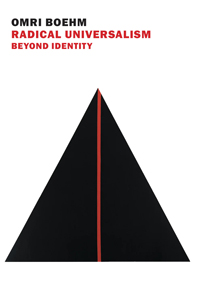
|
|
2026 January 1
Radical Universalism
Jennifer Szalai
Omri Boehm says genuine justice is abstract because it can never be limited to the interests of any one group. He finds fault with those who have hollowed out the idea of universalism by promoting rights and neglecting duty. In contemporary US politics, he says, parochialism reigns: "The right fights in terms of traditional values, the left fights in the name of gender and race."
Boehm was born in Israel. Last January, he was scheduled to give an address at Buchenwald, but the invitation was withdrawn after Israel accused Boehm of "attempting to dilute the commemoration of the Holocaust with his discourse on universal values." His canceled speech laments that the universalist vow of "never again" has too often been taken to mean "never again to us."
Boehm cites Immanuel Kant, who warned about the lazy habit of falling back on an external authority to avoid thinking for ourselves. Adolf Eichmann said in Jerusalem that he had lived his life according to Kant's precepts and was helpless before commands to follow orders. Boehm quotes Hannah Arendt's response: "In Kant, nobody has the right to obey."
Boehm says universalism can be profoundly transformative. Recognizing our duty to one another is a hard sell in a world where we are encouraged to think only about our own interests. Boehm quotes rabbi Abraham Joshua Heschel, who compared the world to a pit of snakes: "The greatest task of our time is to take the souls of men out of the pit."
AR Sounds interesting − and the book is short enough to merit a quick read. I'm glad it comes out in favor of Kantian universalism.
|
|
|

AR
My end-of-year hike culminated in a pause to review Morden Bog
|
|

|
|
2025 December 30
Munich Security Conference 2026: AfD Invited
Deborah Cole
The Munich Security Conference (MSC) has invited lawmakers from Alternative für Deutschland to join its annual gathering of top international defense officials in February.
At MSC 2005, US VP JD Vance lambasted exclusion of the AfD in a speech accusing Germany of stifling free speech. Days before the German general election in February, he also met with AfD co-leader Alice Weidel but not with then-chancellor Olaf Scholz.
The MSC brings together heads of state, government ministers, and military leaders from around the world for a weekend of public addresses and private consultations. Its current leader is former German ambassador to the US and UK Wolfgang Ischinger.
MSC spokesperson: "The MSC decides independently on invitations to its events."
AR The AfD is pro-MAGA and pro-Putin, so it should not be indulged in polite civil society. Ischinger and the MSC have a duty to maintain solidarity with the global community of democracies and to show due respect for the international rules-based order.
Promoting the AfD would risk spoiling all we've achieved over decades in Europe and handing the initiative to barbaric authoritarians. That said, Europe's incarnation as the EU is in dire need of reform to keep up with the emerging global Zeitgeist.
|
|

The White House / US Navy
Trump class battleship USS Defiant
|
|

|
|
2025 December 23
Battleships Are Back
The War Zone
President Donald Trump has rolled out plans for new Trump class large surface combatants for the US Navy. These are to be armed with a wide array of missiles as well as electromagnetic railguns, laser directed energy weapons, and more. Trump says the goal is to build at least two of these battleships as the centerpiece of a new Golden Fleet.
US Secretary of War Pete Hegseth: "American strength is back on the world stage, and the announcement of the Golden Fleet, anchored by new battleships, the biggest and most lethal ever, .. marks a generational commitment to American sea power across the entire department."
Specification:
★ 30,000−40,000 ton displacement
★ Intermediate-Range Conventional Prompt Strike (IRCPS) hypersonic missiles
★ Laser directed-energy weapons
★ Nuclear-armed sea-launched cruise missiles (SLCM-N)
★ Three Vertical Launch System (VLS) arrays
★ Multiple turreted electromagnetic railguns
★ Command and control with unspecified AI-driven capabilities
US Navy Secretary John Phelan: "Our adversaries will know, when the Trump-class USS Defiant appears on the horizon, American victory at sea is inevitable."
AR What an amazing Christmas present for war nuts everywhere!
|
|

NATO
German tanks stand guard on the Eastern Front: NATO Multinational Battle Group Lithuania
|
|

|
|
2025 Winter Solstice
Religion
Kwame Anthony Appiah
For the Romans, religion was about doing the right thing in the right way. What they encountered abroad were, in their eyes, more or less eccentric versions of cultic life.
After the empire became Christian, the Romans claimed to possess the truth. When European Christendom began confronting unfamiliar worlds through exploration and conquest, the traffic with ancient cultures forced reflection on what counted as true religion.
European scholars did their best to treat disparate systems of practice and thought as members of a class. The meaning attached to practices was vague. A sharp division between sacred and profane was undermined by countless ethnographies.
Traditional religions aim at explanation, prediction, and control. Where science posited impersonal forces, traditional thought posited personal ones. What Europeans wanted to call religion was a pragmatic explanatory framework.
Think about how referring expressions work. Causal theories of reference explain why our words can target the same class of object even when our conception of it shifts. A word continues to refer so long as it stands in the right causal relation to the entity that gives rise to its use.
In the historical and social realm, the things we name are doubly human products, being products first of our collective activity, then of our collective description. Many philosophers of language call such entities social kinds.
Religion belongs to that subcategory of social kinds that living people apply to themselves. Classifications and people classified reshape one another. Categories create kinds.
The larger truth is that we navigate the world with models that merely approximate it. The map may not be the territory, but the sciences advance through such tolerable falsehoods. Their worth lies in the utility of their results.
Religion still orders law and policy, directs research, and shapes the inner lives of those who use it. For the religionist, it continues to name a space of meaning.
AR Good point − the word "religion" denotes a modern and rather artificial category or kind.
Today, religion may be something with primitive roots and partisan (even eccentric or extremist) modern expressions, but in previous centuries it denoted a coloring or tendency of life and thought so pervasive and intangible as to seem natural and given.
The contrast with science and secular life is modern.
2025 December 18
Putin's Next Target
Paul Mason
Donald Trump told Europeans they are on their own in the deterrence of Russian aggression.
NATO secretary general Mark Rutte: "We must be prepared for the scale of war our grandparents or great-grandparents endured."
Militarily, Europe is strong enough to deter Putin. But our fragmenting social cohesion, mistrust in the institutions of democracy, and complacent political class worry me. Defeating an enemy is about removing their will to fight as well as their means to fight.
Faced with Putin's aggression, European NATO is all we have.
AR The UK is vulnerable to hybrid warfare until the threat is more widely understood among voters. Europe is vulnerable until its national leaders do more to demonstrate that our unity is implacable. To strengthen NATO, we need more economic integration.
2025 December 17
Western Democracy
Rafael Behr
Vladimir Putin restored order and national self-esteem to Russia, but not political freedom.
Putin sees liberal democracy as stupid and weak. It submits its rulers to the contradictory caprices of dumb voters. The way to accelerate its failure is to amplify those contradictions, nurture division, and accelerate polarization.
All divergence of opinion is ripe for radicalization via the algorithms of social media. Anything that inflames the social tissue that holds multicultural societies together can be used to attack the democratic immune system.
Putin's export of chaos can involve incursions over NATO borders with drones, ships, and submarines. It features cyber-attacks on infrastructure, arson, and sabotage. The more insidious threat is pollution of democratic discourse.
Ideology is not the prime vector for sabotage. Political commitment and activism can be less useful than apathy and disengagement. The most toxic substance is cynicism. Democracy itself starts to be dismissed as a sham.
Putin sees that democracy is easily manipulated by elites to legitimize plunder. Post-Soviet Russians were tricked by the great lie of political freedom. That lie was a rhetorical patina on the western conspiracy to diminish Russia.
This is the resentment that fuels Putin's hostility. Instead of authoritarian regimes crumbling because their captive subjects craved freedom, it will be demoralized citizens of failing liberal societies turning to strong leaders for order.
Dictators underestimate the resilience of societies governed by law and institutions.
AR This seems a sound analysis. Putin may win a few tactical victories − such as Brexit and Trump − but he can't win the long game. We just need to stay strong and hold out.
|
|


|
|

|
|
2025 December 16
The Truth Physics Can No Longer Ignore
Adam Frank
Physicists aim to understand living things as machines. But a mystery is unfolding in every living being that challenges basic assumptions.
Reductionism is not the only way to think about things. In complex systems, the whole is more than the sum of its parts. Once particles come together in organisms, particle physics is not enough.
A living body is a dynamic pattern playing out over time. The patterns that make up life are self-organized. Living systems both create and maintain themselves in a strange loop.
Life is the only system in the universe that uses information for its own purposes. A robot follows a program, but life is both agentic and autonomous. Analyzing life as a complex system may help.
Large language models may or may not achieve general intelligence or even become conscious. The best way to assess such claims is to study life.
The study of life opens a path for the future of physics on a level playing field with life science.
AR I read this piece as a pendant to my book Psy‑Phy.
European Decline
Anton Jäger
Europe has been provincialized. The region has been decaying and may be at risk of civilizational erasure.
A reckoning with European decline can give rise to a healthier approach to the present. After a century of Europe in charge, it can free Europeans of a heavy burden.
Brussels no longer suffers from denial. Yet many of the remedies in circulation today are likely to aggravate the disease. We need a new politics of decline.
Europe needs a break with the austerity fetish. EU technocrats are the Taliban of neoliberalism in an age that has declared it obsolete.
Europe needs conscious centralization and pooling of sovereignty. Fragmentation held sway for too long as it slid into ever deeper dependence on the United States.
Europe should heed Britain. In the postwar world, as its empire was crumbling, Britain opted to become butler to the United States, forgoing independence for a special relationship.
Europe need not become a supersized Britain. It can shed its delusions of grandeur. It can play the game even if it no longer gets to be the star player.
Europe can become a pleasant public allotment in the suburbs of the new global order.
AR As a European senior citizen, I can befriend this prospect.
|
|

|
|
2025 December 15
A Viable America
The New York Times
The United States won the Cold War with a broad continuity of policy between Republican and Democratic administrations. We could not hope to win an ideological struggle against Communist adversaries if we were faithless to our own ideals. Shared prosperity was vital.
This is not the approach of the Trump administration. President Trump believes in cutting deals, not sharing values; in making money, not winning friends; in hard power, not soft power. He is indifferent to the distinction between despotism and democracy.
Russia seeks to annex a neighbor. China is eyeing regional hegemony and expanding its arsenals. A Chinese attack on Taiwan would push the world into an economic crisis. A Russian attack on a NATO member state would put Europe and America on a global war footing.
Arsenals alone did not win the Cold War. Just as important were the tools of soft power. Respectful consultation among allies. Mutually beneficial trading ties. Fidelity to democratic ideals. Strategic firmness matched with diplomatic flexibility. Patience.
If the United States is on the cusp of a new Cold War, these will be the tools we will require. We cannot afford the consequences of a world in which dictators can aggress at will. Preventing that requires leaders with wisdom and vision.
AR America without allies becomes a rogue nation. Europe without the EU becomes a crazy quilt of unviable states. Russia without Putin becomes a potentially civilized state. China without socialism becomes less viable. Americans must choose allies wisely.
2025 December 14
America Needs Allies
The New York Times
The Tomahawk cruise missile can travel over 1,600 km to deliver 450 kg of explosives onto a target. In June, the military fired 30 of them to destroy nuclear facilities in Iran. With threats growing worldwide, the United States and its allies are short of Tomahawks.
Last year, the United States was close to a deal to co-produce Tomahawks at a factory in Japan, potentially doubling production of the missiles. US officials said expanding production abroad would damage the US economy and risk the US technological edge. The deal has now gone cold.
The United States has a 17% share of global manufacturing. China has close to 28%. It is acquiring advanced weapons systems and equipment many times faster than America is. One Chinese shipyard can build more than all American builders combined.
The United States risks being overtaken militarily by a rising industrial powerhouse. History shows such competitions between rising powers and established ones often end in catastrophic wars. The United States needs to rethink its approach to alliances.
For too long, many allies have outsourced their own protection to the United States, but an alliance of the United States with Japan, South Korea, Canada, Australia, the European Union, and others can match China. Democracies need to collaborate far more fully.
In a world where America is no longer the dominant superpower, the United States needs to reassure those with shared values. President Trump is undermining the foundations of US alliances when the United States needs all the friends it can get.
AR Let's not let a drama become a tragedy. The archvillain Putin has already saddled us with Brexit and Trump, but we needn't compound those plot twists by persisting in error.
|
|
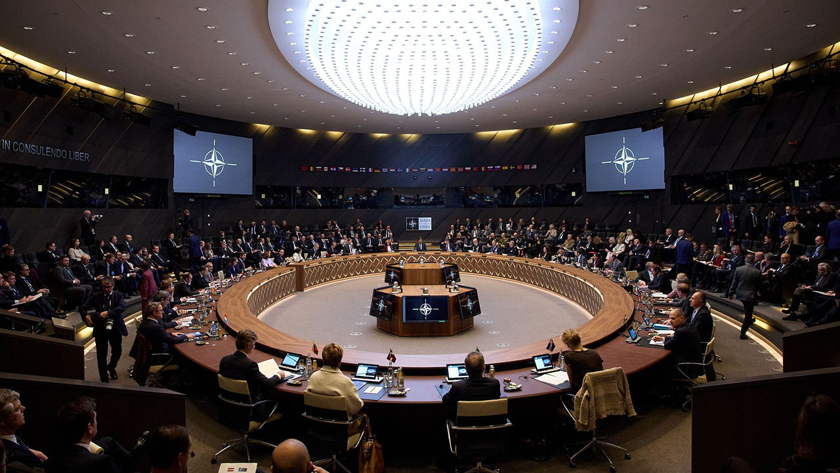
NATO
NATO secretary general Mark Rutte: "NATO is a defensive alliance. We will remain a defensive alliance, but make no mistake,
we are ready and willing to do what it takes to protect our 1 billion people and secure our territory."
|
|




















